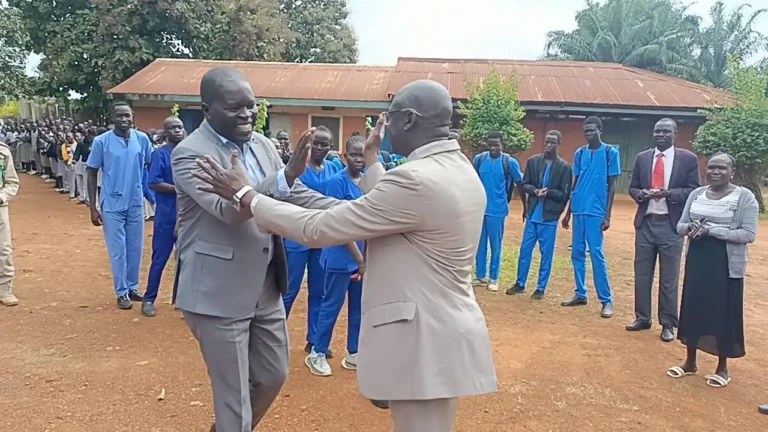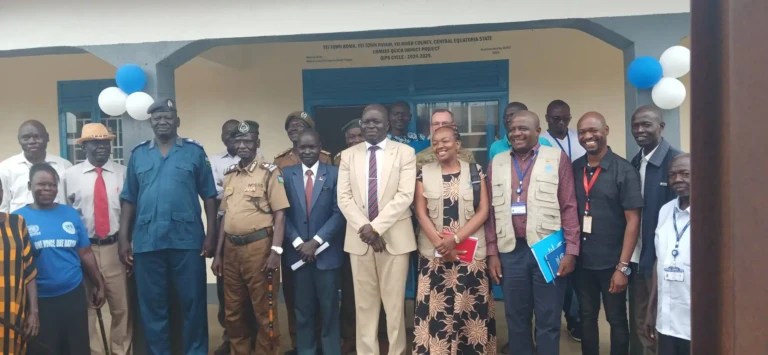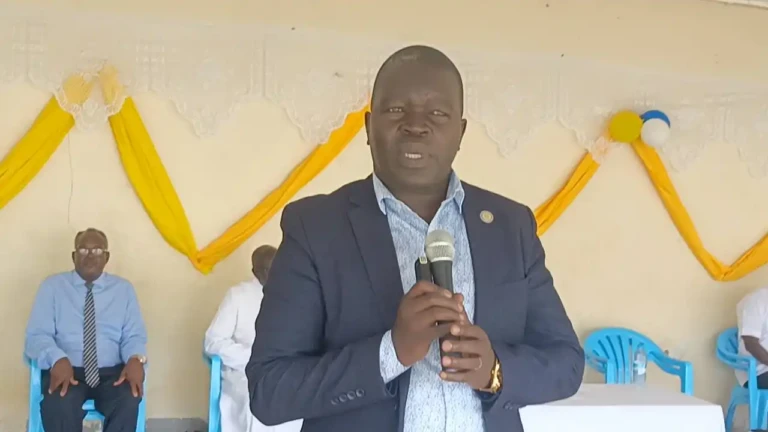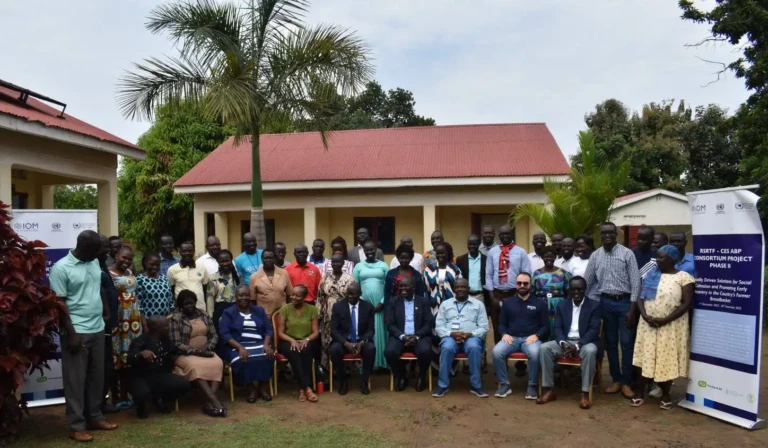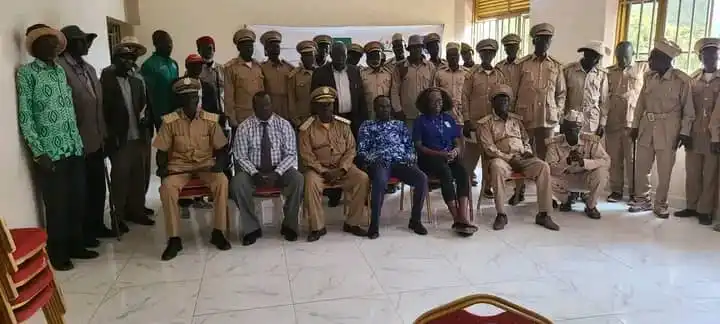
PHOTO: Kajo Keji County Press
(KAJO-KEJI COUNTY) – The Commissioner of Kajo-Keji County, Hon. Wani Jackson Mule, has praised the United Nations Development Programme (UNDP) and the Central Equatoria State Ministry of Local Government and Law Enforcement for supporting a three day training programme for 38 traditional leaders in the county.
The training aims to strengthen the role of traditional authorities in delivering justice and resolving disputes in line with South Sudan’s legal and human rights frameworks.
Speaking at the launch of the training on Thursday, 7 August 2025, Commissioner Mule described the initiative as both timely and essential. He referred to traditional leaders as “custodians of the people” and stressed the importance of providing them with the tools and knowledge needed to effectively serve their communities.
The commissioner also reaffirmed his administration’s ongoing commitment to revitalising the Kajo-Keji County Council. He announced plans to conduct similar training for county councillors, focusing on their roles in legislation, representation and oversight.
Mule encouraged the chiefs in attendance to fully participate in the training, while stressing the importance of delivering better services to vulnerable populations across the county.
Martin Simon Wani, Director General at the Central Equatoria State Ministry of Local Government and Law Enforcement, echoed the commissioner’s sentiments. He reaffirmed the Ministry’s mandate to support and empower traditional leaders while enhancing the three key arms of local government. Wani also announced that new uniforms would be provided to the 38 participating chiefs.
Representing the UNDP, Rule of Law Specialist Brenda Ambani outlined the objectives of the training. She said the programme is designed to strengthen the knowledge and capacity of traditional leaders, support broader community development and ensure justice is delivered in a manner consistent with national laws and international human rights standards.
The training was organised under the theme “Enabling Traditional Courts to Adjudicate Disputes and Administer Justice in Harmony with National Laws, a Human Rights Based Approach, and Adherence to the Local Government Act of 2009, the Child Act of 2008, and the Transitional Constitution.”
Over the three days, the 38 chiefs will explore how to handle cases within their customary courts while adhering to statutory laws that protect vulnerable groups, particularly children and women.
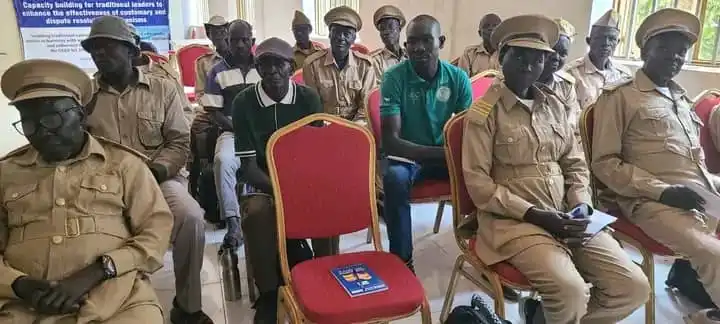
Training Overview
| Details | Figures/Descriptions |
|---|---|
| Location | Kajo-Keji County, Central Equatoria State |
| Participants | 38 traditional leaders (chiefs) |
| Duration | 3 days |
| Supporters | UNDP, State Ministry of Local Government and Law Enforcement |
| Objectives | Align traditional justice with national laws, human rights, and the constitution |
| Theme | Justice and human rights in traditional courts |
| Incentives | New uniforms provided to all 38 chiefs |
Many communities rely on chiefs as the first point of legal contact. Efforts such as this offer a practical step towards strengthening governance at the grassroots level and ensuring justice is not only accessible but also fair and consistent with national values.
Discover more from Access Radio Yei News
Subscribe to get the latest posts sent to your email.

